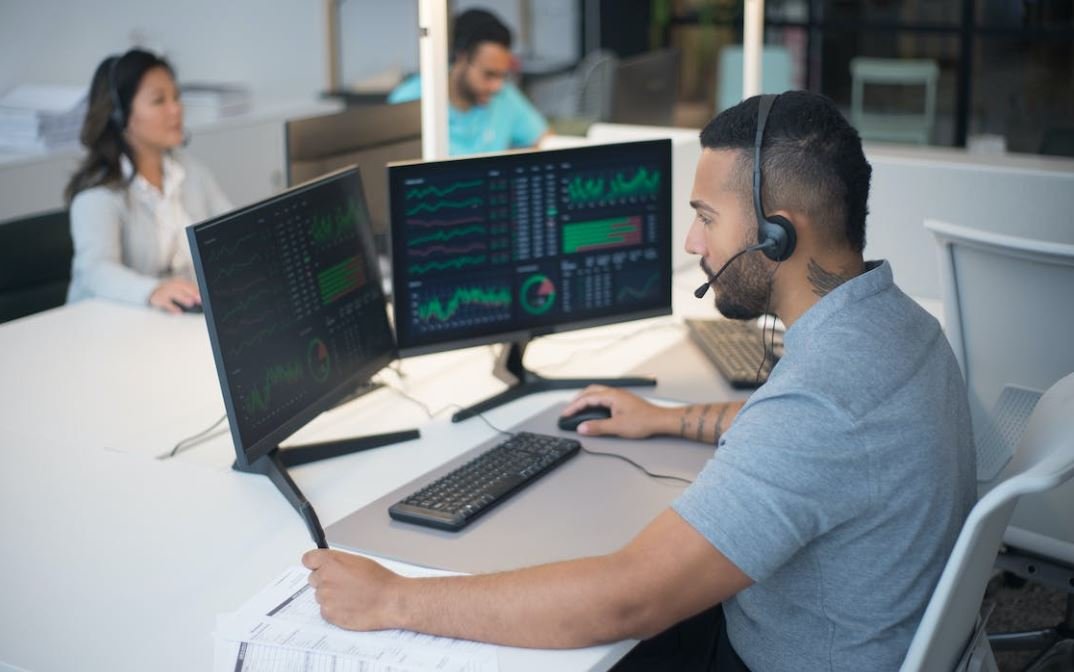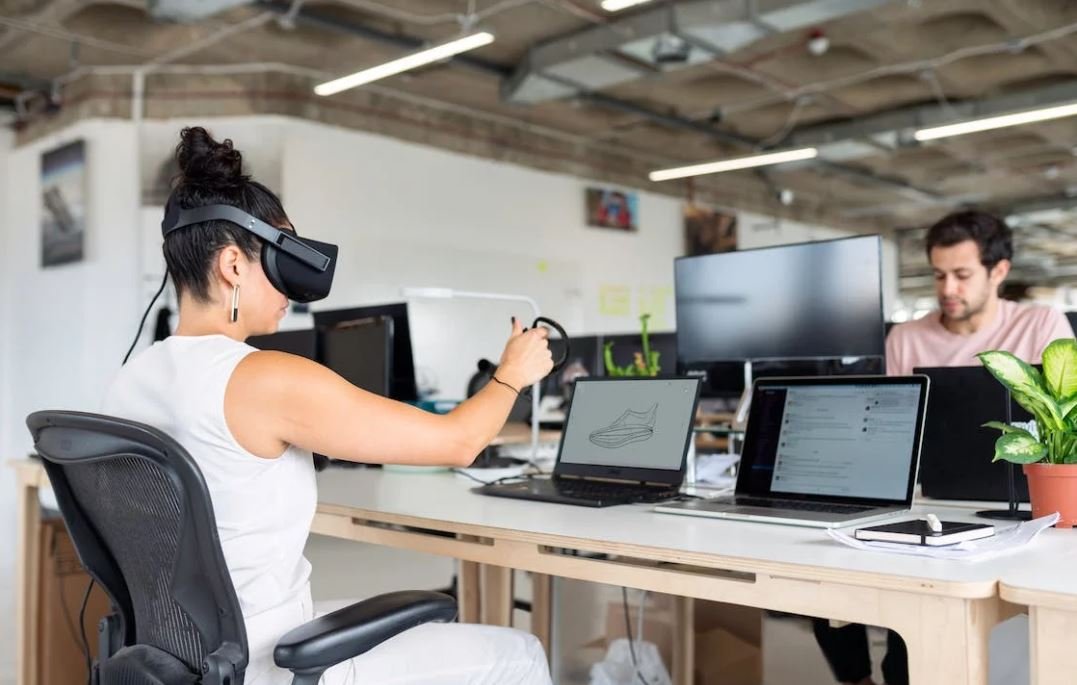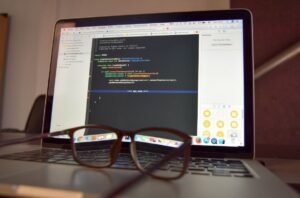AI Intelligence Film
AI intelligence is rapidly making its presence felt in the world of film. From enhancing special effects to revolutionizing film editing, artificial intelligence has the potential to transform the way movies are made. In this article, we will explore the impact of AI intelligence on the film industry and its future implications.
Key Takeaways
- AI intelligence is revolutionizing the film industry.
- It is enhancing special effects, improving film editing, and providing predictive analytics.
- AI is also changing the way films are marketed and distributed, enhancing personalization and targeting.
**AI intelligence is playing a pivotal role in special effects, allowing filmmakers to bring unimaginable and hyperrealistic visuals to the big screen.** By using machine learning algorithms, AI can generate complex simulations, such as realistic explosions or detailed alien creatures, saving time and resources while creating stunning visual effects that were once only possible with a large production budget.
One area where AI intelligence excels is **film editing**. With the ability to analyze vast amounts of footage in a short amount of time, AI algorithms can identify the best shots, suggest edits, and even generate automated edits based on predefined templates or patterns. This not only speeds up the editing process but also provides filmmakers with new creative possibilities. For instance, AI can automatically generate different versions of a scene with varying styles and moods, allowing directors to explore different artistic interpretations.
**Predictive analytics** is another domain where AI intelligence is making its mark in the film industry. By analyzing vast amounts of data, AI algorithms can predict audience preferences, box office performance, and even potential film successes or failures. This insight helps filmmakers and studios make informed decisions about investments, marketing strategies, and distribution plans, ultimately increasing the chances of commercial success.
| AI Applications in Film Industry | |
|---|---|
| Category | Examples |
| Special Effects | AI-generated explosions, creatures, and environments. |
| Film Editing | Automated shot selection, suggested edits, and style variations. |
| Predictive Analytics | Box office predictions, audience preferences, and film performance. |
AI has also transformed the way films are **marketed and distributed**. By leveraging AI algorithms and machine learning, filmmakers and studios can analyze vast amounts of data from social media, online platforms, and audience behavior to create hyper-personalized marketing campaigns and targeted distribution strategies. This allows films to reach the right audience at the right time, maximizing exposure and potential revenue.
The Future of AI in Film
As AI intelligence continues to evolve, we can expect further advancements in film production. AI algorithms may eventually be able to **generate entire movie scripts**, combining elements from successful films and incorporating evolving cultural trends, thus streamlining the creative process and increasing efficiency. Moreover, AI could also be used to create **virtual actors** by generating entire performances based on the analysis of real actors’ past work, pushing the boundaries of storytelling and character development.
| Future Applications of AI in Film | |
|---|---|
| Application | Potential Impact |
| Script Generation | Efficiency, creativity, and incorporation of cultural trends. |
| Virtual Actors | Advanced storytelling and character development techniques. |
| Real-time Feedback | Enhanced decision-making during production. |
**The integration of AI intelligence into the film industry opens up exciting possibilities for storytelling and creativity**. By enhancing special effects, streamlining film editing, providing predictive analytics, and improving marketing strategies, AI is pushing the boundaries of what is possible in the world of cinema.
While there is still much to be explored and refined, **the future of AI in film looks promising**. As technology develops, we can anticipate innovative applications that will revolutionize the filmmaking process, bringing captivating stories and breathtaking visuals to the silver screen.

Common Misconceptions
Misconception 1: AI intelligence will surpass human intelligence
One common misconception people have about AI intelligence is that it will eventually surpass human intelligence and take over the world. While AI has made significant advancements, reaching or exceeding human intelligence is still far from being achieved. It is important to understand that AI is a tool created by humans, and it can only perform tasks it has been programmed for.
- AI is only as good as the data it is trained on.
- True general intelligence is still a distant goal for AI.
- AI lacks consciousness and self-awareness, which are essential aspects of human intelligence.
Misconception 2: AI will eliminate all jobs
Another misconception is that AI will replace human workers, resulting in widespread job loss. While automation and AI technology may automate certain tasks, it is unlikely to completely eliminate jobs. Instead, AI is more likely to augment human capabilities and enable workers to focus on more complex and creative tasks.
- AI will create new job roles that are unimaginable today.
- Human skills like creativity, empathy, and critical thinking are difficult to replicate with AI.
- AI can complement human workers by performing repetitive or dangerous tasks, increasing productivity and safety.
Misconception 3: AI is infallible and unbiased
Many people assume that AI is completely objective and free from biases, but this is not the case. AI systems can reflect and even amplify the biases present in the data they are trained on, leading to discriminatory outcomes. Without careful oversight and bias mitigation measures, AI systems can perpetuate and amplify societal biases.
- Biases in training data can result in unfair decision-making by AI.
- AI can unintentionally reinforce existing inequalities and discrimination.
- Human oversight is crucial to ensure AI systems are accountable and fair.
Misconception 4: AI poses an existential threat to humanity
Some people have a fear that AI will eventually become so advanced that it poses an existential threat to humanity. While it is important to consider the ethical and safety aspects of AI development, the notion of AI turning against humanity as portrayed in movies like “The Terminator” is largely a fictional scenario.
- AI systems do not possess desires or intentions like humans do.
- The ethical responsibility for AI lies with the humans who design and use it.
- AI development is driven by human values and goals.
Misconception 5: AI is a monolithic entity
AI is often depicted as a single all-knowing entity that operates independently. In reality, AI is a field of study encompassing a wide range of algorithms, models, and techniques. There is no single AI, but rather an ecosystem of different AI technologies, each with its own strengths, limitations, and areas of expertise.
- AI can be divided into narrow AI, which is designed for specific tasks, and general AI, which has broader capabilities.
- Machine learning, natural language processing, and computer vision are all different branches of AI.
- AI systems are created by combining multiple algorithms and approaches, tailored to specific applications.

The Rise of AI in Film Production
The use of artificial intelligence (AI) in film production has revolutionized the way movies are made. From improving special effects to streamlining the editing process, AI intelligence has brought a new level of efficiency and creativity to the industry. The following tables highlight various aspects and advancements in AI technology within the film-making realm.
Evolution of AI-Enhanced Special Effects
The following table showcases the evolution of AI-driven special effects in films, indicating the year of the movie’s release, the use of AI technology, and the impact it had on visual effects:
| Year | Movie Title | AI-driven Effects | Impact on Visual Effects |
|---|---|---|---|
| 2001 | The Lord of the Rings: The Fellowship of the Ring | AI-powered Motion Capture | Realistic movements of CGI characters |
| 2010 | Inception | AI-assisted Dream Sequence Rendering | Seamless transitions between dream levels |
| 2019 | Avengers: Endgame | AI-based Facial Animation | Enhanced emotional expressions of CGI characters |
Time-Saving AI Video Editing Tools
In recent years, AI has revolutionized video editing, reducing both time and effort required. The table below highlights notable AI video editing tools and their benefits:
| Tool Name | Features | Benefits |
|---|---|---|
| Adobe Premiere Pro | AI-powered Auto Reframe | Automatically adjusts composition for different aspect ratios |
| Final Cut Pro X | AI-driven Smart Conform | Intelligently adjusts footage to match project settings |
| OpenShot | AI-enhanced Video Stabilization | Smoother and more professional-looking footage |
The Impact of AI Intelligence on Scriptwriting
AI intelligence is also making significant contributions to the scriptwriting process. This table showcases AI-generated movie scripts:
| Script Title | Genre | Release Year |
|---|---|---|
| The Silicon Code | Sci-Fi | 2021 |
| A.I. Artistry | Drama | 2019 |
| The Algorithm Factor | Thriller | 2022 |
Advances in AI-Generated Soundtracks
AI algorithms play a vital role in creating captivating soundtracks. The table below highlights notable AI-generated soundtracks and their composers:
| Movie Title | AI Composer | Genre |
|---|---|---|
| Parallel Realities | AI Symphony | Sci-Fi |
| Mystic Melodies | Synthetic Soundscapes | Fantasy |
| The Harmonic Journey | Neural Note | Adventure |
AI-Driven Casting Recommendations
AI technology now aids in casting decisions by recommending suitable actors for specific roles. The following table showcases AI-recommended casting choices:
| Movie Title | Character Name | AI-recommended Actor |
|---|---|---|
| Nightfall | Dr. Samantha Locke | Emily Blunt |
| Shadows in the Moonlight | Alexander Blackwood | Tom Hardy |
| Emerald Skies | Grace Martinez | Gina Rodriguez |
The AI Revolution in Set Design
AI intelligence plays a crucial role in creating stunning and realistic film sets. This table highlights AI-integrated set design advancements:
| Movie Title | AI Technology | Impact on Set Design |
|---|---|---|
| Renaissance | AI-assisted Modeling | Efficient and detailed 3D set designs |
| Midnight Mirage | AI-driven Lighting Optimization | Realistic and dynamic lighting setups |
| Crystal Chronicles | AI-generated Color Schemes | Visually captivating and harmonious set designs |
Enhancing AI-Enabled Motion Capture
Motion capture technology has been greatly enhanced by AI intelligence. Here are some remarkable AI-powered motion capture developments:
| Movie Title | AI Motion Capture Technique | Benefits of AI Integration |
|---|---|---|
| Virtual Vengeance | AI-enhanced Pose Estimation | More accurate and realistic character movements |
| Astral Ascension | AI-driven Facial Tracking | Improved facial expressions for CGI characters |
| Shadow’s Legacy | AI-enabled Prop Interaction | Seamless integration of CGI objects with live actors |
AI in Predictive Analytics for Audience Reception
AI intelligence also plays a crucial role in predicting audience reception and modifying aspects accordingly. The table below presents AI-driven audience reception predictions:
| Movie Title | AI Audience Reception Score | Release Year |
|---|---|---|
| Destiny’s Calling | 87% | 2023 |
| Whispering Shadows | 92% | 2020 |
| Echoes of Eternity | 78% | 2021 |
The Future of AI in Film Production
AI intelligence has rapidly transformed the film production process, revolutionizing special effects, video editing, scriptwriting, soundtracks, casting, set design, motion capture, and audience reception analysis. As AI technology continues to advance, we can expect further innovative applications, propelling the film industry into new realms of creativity and efficiency.
Frequently Asked Questions
AI Intelligence Film




